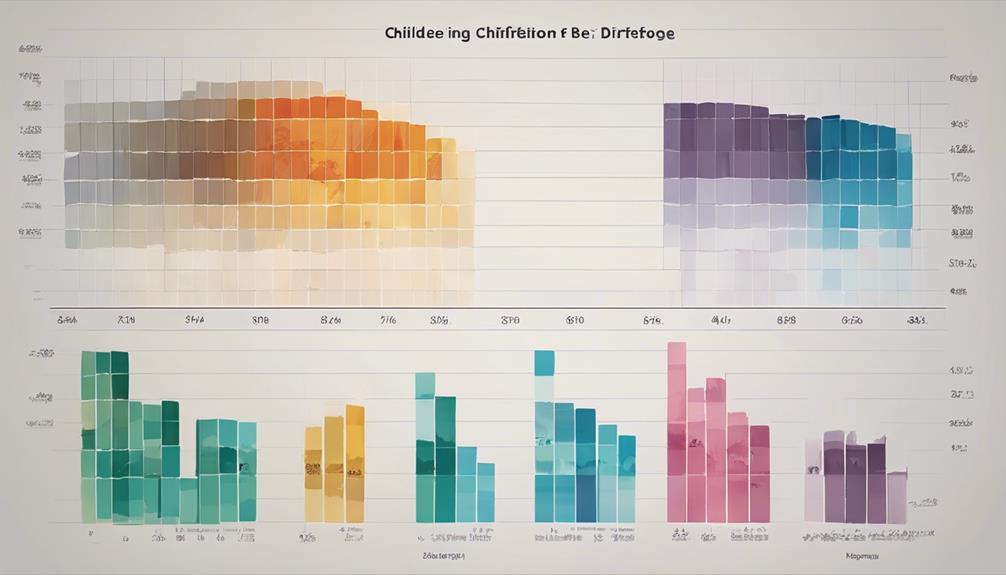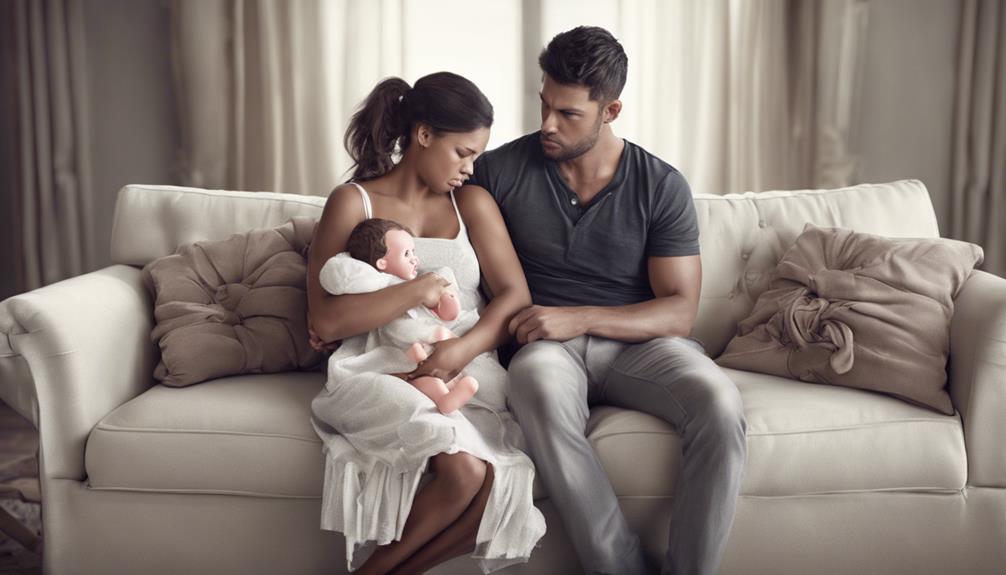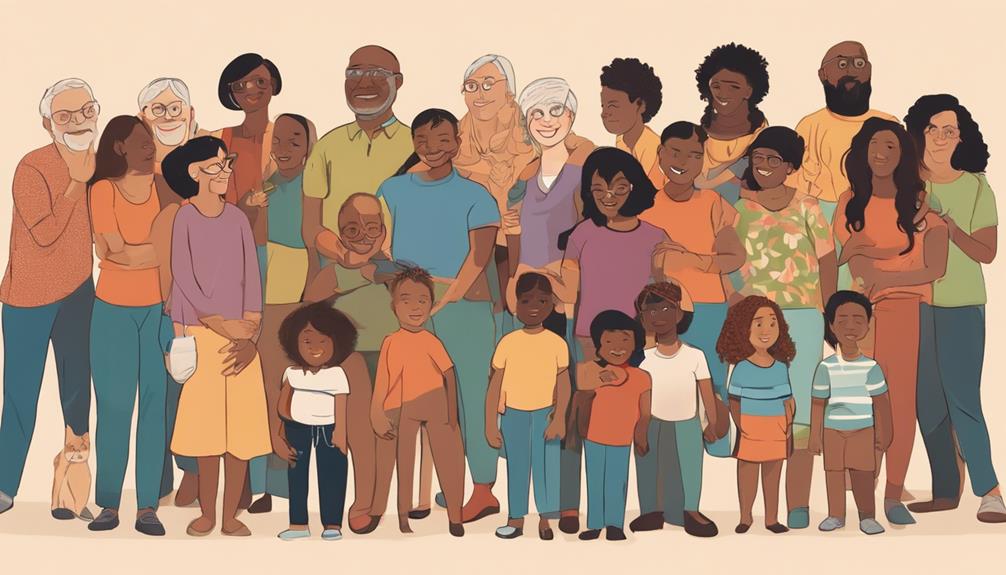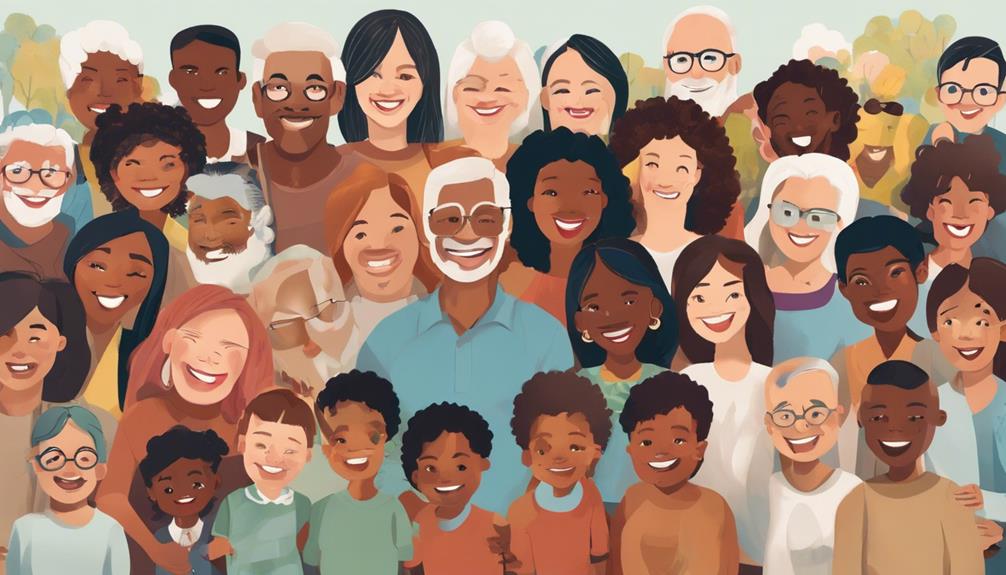Some might argue that the childfree choice is a personal matter that doesn’t warrant extensive research. However, the latest findings in this field paint a complex and intriguing picture of those who opt out of parenthood. In fact, recent studies have shown that childfree individuals are more likely to have higher levels of education and income compared to their parenting counterparts. Additionally, the media has shed light on the childfree lifestyle by highlighting the stories of childfree celebrities in 2018, which has sparked a resurgence of interest in this demographic. As societal attitudes continue to shift, it is important to continue researching and understanding the factors that influence the decision to forego parenthood.
From societal attitudes to health implications, the landscape of childfree living is rich with nuances that deserve exploration. Join us as we uncover the layers of this evolving research landscape, where each discovery challenges preconceived notions and opens doors to a deeper understanding of the childfree choice.
Key Takeaways
- Childfree adults prioritize quality relationships and report higher psychological well-being.
- Decision-making influenced by societal norms, personal values, and career aspirations.
- Childfree lifestyle linked to increased life satisfaction and financial stability.
- Community support crucial in combating stigma and promoting self-acceptance.
Prevalence of Childfree Choice
Childfree adults constitute a significant portion of the adult population in Michigan, making up over 21%. Research suggests a prevalence of around 27% childfree adults, including men, indicating a growing trend in choosing not to have children. This decision often stems from a combination of factors such as societal norms, personal values, career goals, and environmental concerns. Many childfree adults decide early in life not to have children, with the average age of decision being 38.58 before the age of 20.
Understanding the prevalence of childfree adults in Michigan sheds light on the diverse reasons behind this choice. It reveals a shift in societal attitudes towards embracing different paths in adulthood, beyond traditional expectations. By exploring the research on childfree adults, we gain insight into the complexities of decision-making processes and the various influences that shape individuals' choices regarding parenthood.
Age of Decision Trends

We notice a clear pattern in the age at which childfree adults make their decision, with many opting out of parenthood during their teens or twenties.
Factors like societal norms, personal values, and career aspirations play a significant role in influencing when individuals choose a childfree lifestyle.
As we explore the age of decision trends, we gain valuable insights into how generational shifts impact the prevalence of this deliberate choice.
Early Decision Patterns
In examining the age of decision trends among individuals who opt to remain without children, a clear pattern emerges showing that the majority make this choice during their teens or twenties, with some even deciding before reaching the age of 10.
Factors influencing this decision include societal norms, personal values, career aspirations, and concerns about the environment. This early decision pattern among childfree adults highlights the impact of personal values and societal expectations on shaping one's views on parenthood.
Understanding these age-related trends can provide insights into the factors that influence individuals to choose a childfree lifestyle.
Influencing Factors on Age
Factors such as societal norms, personal values, and environmental concerns play a significant role in shaping the age at which individuals decide to remain childfree. The decision-making process for childfree adults is influenced by a combination of factors, including career goals and societal expectations. Research shows that the majority of childfree adults make this decision in their teens or twenties, with some even deciding before reaching the age of 10.
In Michigan, the average age of decision for childfree adults is around 38.58 years old. Notably, women under 40 display a stronger inclination towards not wanting children rather than being undecided. Understanding these age of decision trends is crucial in comprehending the prevalence and shifts in the choice to lead a childfree lifestyle.
Generational Shift Impacts
Witnessing a gradual shift in age of decision trends, the childfree choice reflects evolving societal perspectives and individual priorities among different generations. When it comes to decision-making regarding having children, research shows that:
- The average age of decision for not wanting children is around 38.58 years old in Michigan.
- Most childfree adults make the choice to not have children during their teens or twenties.
- Women under 40 show a higher inclination towards being childfree compared to being undecided.
- Factors influencing the decision to be childfree include societal norms, personal values, career goals, and environmental concerns.
These insights highlight the complex interplay of generational shifts, societal norms, and personal considerations that contribute to the prevalence of childfree adults in today's society.
Societal Attitudes Toward Childfree Individuals

We notice a stark contrast in the way parents and childfree individuals are perceived in society. Parents often display negative emotions towards those who choose not to have children, showcasing a significant bias.
This in-group favoritism highlights the societal attitudes and stigma surrounding the childfree choice.
Public Perception of Childfree
Societal attitudes towards childfree individuals are heavily influenced by parental biases, in-group favoritism, and societal stereotypes. When considering the prevalence of childfree adults, it becomes apparent that in-group favoritism among parents often leads to warmer feelings towards other parents than towards childfree individuals.
Interpersonal warmth judgments are skewed by parenthood being a visible social identity, contributing to societal biases. Additionally, societal attitudes are shaped by gender stereotypes, ethnicity-based perceptions, and political implications. This complex interplay of factors underscores the challenges faced by childfree individuals in navigating societal perceptions and highlights the need for greater understanding and acceptance.
Stigma Surrounding Childfree
Amid societal norms and biases, childfree individuals often encounter stigma and negative attitudes that impact their daily interactions and sense of belonging.
Research reveals that parents tend to show in-group favoritism, displaying warmer feelings towards other parents while expressing negativity towards those without children. This bias can lead to criticism and pressure on childfree individuals, particularly women, affecting their autonomy and decision-making processes.
Gender stereotypes and ethnicity-based biases further influence societal perceptions, contributing to the stigmatization of those who opt out of parenthood. The asymmetric polarization in warmth judgments between parents and childfree adults highlights the challenges faced by childfree individuals due to prevailing societal attitudes.
It's crucial to address and dismantle these biases to create a more inclusive and understanding environment for everyone.
Motivations for Choosing Childfree Lifestyle

Influenced by practical and financial considerations, a growing number of millennials and Gen Zers are opting for a childfree lifestyle. The decision to embrace a childfree lifestyle is multifaceted, driven by a combination of motivations that reflect the evolving values of younger generations.
- Personal Values: Many individuals prioritize personal fulfillment and self-actualization over traditional family structures.
- Financial Factors: The rising costs of raising a child, including education and healthcare expenses, deter some from starting families.
- Environmental Concerns: Heightened awareness of climate change and sustainability issues lead some to choose not to add to the population growth.
- Societal Norms: Shifting societal expectations and changing roles for women and men play a role in the decision to be childfree.
Millennials and Gen Zers are redefining what it means to lead a fulfilling life, choosing a childfree path that aligns with their values and goals. This generational shift reflects a broader trend towards prioritizing individual well-being and making mindful choices that consider both personal happiness and societal impact.
Impact on Relationships

As individuals who've chosen a childfree lifestyle often experience strong and fulfilling relationships, the impact on their social connections is significant. Childfree adults tend to have intentional lifestyles that prioritize quality relationships, leading to a rich social life filled with fulfilling connections.
Research indicates that childfree individuals often have wider networks of friendships and emotional support compared to parents. By investing time and effort into nurturing these relationships, childfree adults cultivate unique bonds with friends, family, and community members, enhancing their overall well-being.
Choosing a childfree lifestyle allows individuals to focus on developing deep and meaningful connections, ultimately contributing to high levels of satisfaction in their relationships. This intentional approach to social interactions underscores the value that childfree adults place on the quality of their relationships, highlighting the positive impact that their lifestyle choice can have on the richness and fulfillment of their social connections.
Psychological Well-being of Childfree Individuals

Choosing a childfree lifestyle often results in higher levels of psychological well-being for individuals. This decision can lead to reduced stress levels and increased life satisfaction, offering more opportunities for personal growth and self-care. Research indicates that childfree individuals often have stronger and more intimate relationships with their partners, as well as larger social circles that provide additional support and fulfillment in their lives.
Embracing a childfree life can contribute to a sense of contentment and overall well-being, allowing individuals to focus on their mental health and happiness without the added responsibilities of parenting. This freedom to prioritize one's own needs and desires can lead to a more fulfilling and satisfying psychological state, enhancing the quality of life for childfree individuals.
Economic Considerations in Childfree Decision-making

Considering the financial implications, childfree individuals tend to enjoy greater stability and opportunities for personal and professional advancement. Opting for a child-free lifestyle allows us to allocate resources towards our individual goals and career advancement.
The cost of raising a child, estimated at around $233,610 until age 18, plays a significant role in our decision-making process. By not having children, we can focus on achieving financial stability and pursuing our aspirations without the financial responsibilities that come with parenthood. This choice often leads to higher income levels and more success in our careers, as we can fully concentrate on job opportunities and personal growth.
Ultimately, the decision to be child-free offers us greater financial security and the freedom to channel our resources towards what truly matters to us, whether it's traveling the world, investing in our passions, or reaching new heights in our professions.
Gender Disparities in Childfree Choice

We notice significant gender differences in the decision-making process when it comes to choosing a childfree lifestyle. Cultural expectations and norms heavily influence how men and women perceive the choice of not having children.
Social pressure and stigma also play a crucial role in shaping individuals' attitudes towards being childfree.
Gender Differences in Choice
In the realm of preferences regarding parenthood, distinct gender disparities emerge, notably with a higher proportion of childfree adults being male. When it comes to the decision-making process of being childfree, differences between men and women play a crucial role in shaping individual choices about family planning.
Here's a closer look at gender differences in the childfree choice:
- Men are more likely to choose a childfree lifestyle compared to women.
- Women under 40 often lean towards not wanting children rather than being undecided about parenthood.
- Women's attitudes towards parenthood differ from men's, impacting their choices on having children.
- Understanding these gender differences sheds light on societal expectations and individual autonomy in family planning.
Cultural Expectations and Norms
Cultural expectations and norms heavily influence the childfree choice, particularly in exacerbating gender disparities within this decision-making process. Gender disparities are evident, with societal pressures and gender expectations impacting childfree women significantly. These women often face societal criticism, challenging their autonomy and choices regarding parenthood.
Societal norms tend to enforce traditional family roles, leading childfree women to navigate gendered criticism as they redefine societal norms around motherhood and womanhood. Women under 40, in particular, show a higher inclination towards being childfree, highlighting the complex interplay between societal expectations and personal decisions.
Understanding and addressing these gender disparities is crucial in supporting individuals who choose a childfree lifestyle and promoting a more inclusive and accepting society.
Social Pressure and Stigma
Exacerbating gender disparities, societal pressure, and stigma disproportionately impact childfree women who face heightened scrutiny and criticism compared to men for their decision not to have children. When discussing the childfree choice, it's essential to recognize the specific challenges that women encounter due to traditional gender roles and biases.
In navigating social interactions and professional environments, childfree women often confront judgment and pressure to conform to societal expectations. This scrutiny can lead to feelings of isolation and invalidation of their choices. Addressing these gender disparities is crucial in creating a more inclusive and understanding society where individuals can make decisions about parenthood free from stigma and societal pressures.
- Childfree women face heightened scrutiny and criticism compared to men.
- Traditional gender roles and biases contribute to societal pressure on childfree women.
- Women may experience judgment and pressure to conform to societal expectations.
- Gender disparities need to be addressed to create a more inclusive environment for individuals making decisions about parenthood.
Childfree Couples and Marital Satisfaction

Childfree couples consistently report higher levels of marital satisfaction compared to couples with children. Research indicates that childfree couples experience less marital conflict and have more leisure time to nurture their relationship. Without the responsibilities of raising children, childfree couples can focus on their emotional connection and individual and shared goals, leading to a deeper bond. Their lifestyle choices afford them the freedom to engage in activities that promote mutual growth and understanding.
Having more leisure time allows childfree couples to explore new experiences together and build a strong foundation based on companionship and support. By avoiding the stresses that often come with parenting, childfree couples can prioritize their relationship and communicate effectively, fostering a sense of intimacy and emotional closeness that enhances their marital satisfaction. The ability to dedicate time and energy solely to each other contributes significantly to the overall happiness and fulfillment of childfree couples.
Parental Pressure and Childfree Decision

We observe that familial expectations heavily influence our choices, cultural norms play a significant role in shaping our decisions, and social stigma surrounding the childfree lifestyle persists.
These factors can create tension and conflict within relationships, impact our sense of autonomy, and influence how society perceives our decision to remain childfree.
Recognizing and addressing these pressures is crucial in advocating for the rights and respect of childfree individuals in a society where parenthood is often prioritized.
Familial Expectations Impact Choice
Amidst familial expectations, individuals often find themselves grappling with the pressure exerted by parents when making decisions about having children or choosing a childfree lifestyle. This parental pressure can significantly impact the mental and emotional well-being of those navigating the path towards parenthood or a childfree life.
- Parental pressure: Influences decisions on having children.
- Traditional family expectations: Contribute to the challenges faced by childfree individuals.
- Societal norms: Prioritize parenthood, adding to the pressure felt by those opting out.
- Mental and emotional well-being: Affected by familial expectations, creating tension and conflict in decision-making processes.
Cultural Norms Influence Decisions
Navigating familial and societal expectations regarding parenthood often entails confronting the influence of cultural norms on individuals' decisions. Particularly in the face of parental pressure and the choice to remain childfree. Societal pressures and parental influence can weigh heavily on decision-making processes, impacting whether individuals decide to have children or pursue a childfree lifestyle.
Traditional beliefs and societal expectations can shape how individuals view parenthood, making it challenging to deviate from the norm of having children. The childfree choice may involve resisting ingrained cultural norms that prioritize procreation. This can lead individuals to confront and redefine their values in the face of external pressures.
Social Stigma Surrounding Childfree
In facing societal pressure and parental judgment, childfree adults often encounter negative emotions and social stigma surrounding their decision not to have children. This can lead to feelings of isolation and misunderstanding within social circles.
Here are some insights into the social stigma surrounding the childfree choice:
- Parents often exhibit negative emotions like moral outrage or pity towards childfree adults, reflecting social stigma.
- In-group favoritism among parents leads to warmer feelings towards other parents compared to childfree individuals.
- Childfree adults face societal pressure and judgment from parents due to their decision not to have children.
- There's asymmetric polarization in warmth judgments between parents and childfree adults, highlighting the challenges faced by childfree individuals in navigating social stigmas.
Childfree by Circumstance Vs. Choice

Some individuals find themselves childfree by circumstance, facing challenges beyond their control that lead to this life path. This group includes individuals dealing with infertility or health issues that prevent them from having children, leading to feelings of grief and loss.
On the other hand, there are those who are childfree by choice, making a deliberate decision based on personal preferences, values, or lifestyle considerations. These individuals are content with their choice and often face fewer societal pressures or stigmas compared to those who are childfree by circumstance.
Understanding the distinction between these two groups is crucial in recognizing the diverse experiences and perspectives within the childfree community. While both paths may lead to a life without children, the reasons behind each choice shape unique narratives and emotional journeys.
Health and Lifestyle Factors in Childfree Living

Considering the multitude of benefits associated with choosing a childfree lifestyle, it's evident that health and lifestyle factors play a significant role in shaping the experiences of childfree individuals. Childfree individuals often report higher levels of life satisfaction and overall well-being compared to parents. Studies suggest that childfree women, in particular, tend to be happier and experience less stress than mothers.
Additionally, opting for a childfree life can foster stronger and more focused relationships with partners. Furthermore, living without children can lead to greater financial stability and increased career success, allowing childfree individuals the freedom to pursue their goals and ambitions without the constraints of parenthood. Embracing a childfree lifestyle not only positively impacts personal well-being but also contributes to a reduced carbon footprint, making a significant environmental impact.
Community Support for Childfree Individuals

Amidst societal norms and expectations, childfree individuals find solace and camaraderie within supportive communities that understand and validate their choice. Online platforms like Reddit, Instagram, TikTok, and the We Are Childfree community in Berlin serve as vital spaces where childfree individuals can connect, share experiences, and feel heard. These childfree communities play a crucial role in combating feelings of isolation and the weight of societal pressures by fostering a deep sense of belonging and solidarity.
Within these communities, robust support systems are in place to promote mental well-being, self-acceptance, and empowerment among childfree individuals. Through advocacy efforts and the sharing of personal narratives, childfree communities actively work to challenge stereotypes, advocate for autonomy, and celebrate the diverse paths to fulfillment that exist beyond parenthood. In these spaces, diversity is embraced, and members are encouraged to embrace their childfree choice confidently, knowing they've a supportive community behind them.
Future Perspectives on Childfree Research

As we look ahead to future perspectives on childfree research, it becomes imperative to delve into longitudinal studies to track the evolving attitudes and decisions of individuals over time. Longitudinal studies offer a unique opportunity to witness firsthand how societal shifts, such as changing cultural norms and technological advancements, influence the childfree population.
Understanding the impact of societal perceptions and biases towards childfree individuals and how they may evolve across different regions is crucial for comprehensive research in this field. Furthermore, investigating the generalizability of findings beyond specific locations, like Michigan, to a national scale will provide insights into the consistency of childfree trends across diverse populations.
- Longitudinal studies offer insights into societal shifts.
- Investigate societal perceptions and biases towards childfree individuals.
- Explore the impact of cultural norms and technological advancements.
- Assess the generalizability of findings to a national level.
Frequently Asked Questions
What Is the Regret Rate for Childfree People?
We don't have substantial evidence supporting high regret rates among childfree individuals. Older childfree adults don't seem to experience more life regret compared to older parents. Childfree individuals are as happy as parents, showing low levels of regret.
In general, we don't regret our decision to remain childfree. Our life satisfaction and fulfillment levels are similar to parents, debunking the myth of regret in the childfree choice.
Will Gen Z Have Kids?
We're seeing Gen Z make diverse choices about having kids. Many are leaning towards a childfree lifestyle, driven by factors like financial stability, career goals, and environmental concerns.
It's possible that this generation might have a lower birth rate due to evolving attitudes towards parenthood. The decision to have kids is deeply personal, and Gen Z's choices reflect a shift towards valuing personal freedom, individual autonomy, and social awareness.
Which Gender Is More Childfree?
We've discovered that men tend to be more inclined towards a childfree lifestyle compared to women. Research indicates a higher prevalence of childfree individuals among men than women, pointing towards gender differences in this choice.
It seems that men are more likely to opt for a childfree path.
Why Are Millenials Not Having Kids?
We're not having kids for various reasons. Practical and financial concerns, like the high cost of raising children, play a significant role.
Environmental worries, such as climate change, also impact our decision.
The physical and mental toll of starting a family is another factor. Plus, we're reevaluating societal norms and expectations.
Our choice is shaped by personal values, career aspirations, and changing views on family dynamics.
Conclusion
In conclusion, the latest research on the childfree choice illuminates the diverse reasons and experiences of those who opt out of parenthood. It challenges societal norms and sheds light on the need for greater understanding and acceptance.
As we continue to explore this topic, let's embrace the unique perspectives and choices of childfree individuals, recognizing that their decision is just as valid and meaningful as any other. Let's celebrate individuality and diversity in all forms.









